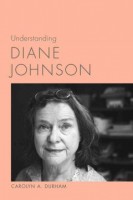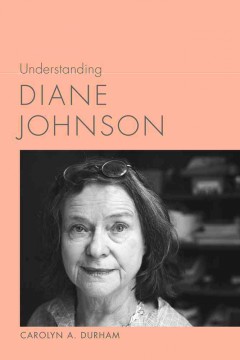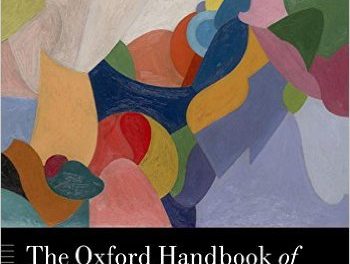 Author: Carolyn A. Durham
Author: Carolyn A. Durham
Publisher: The University of South Carolina Press
Book Review by: Laxmi Chaandi
Diane Johnson has authored more than a dozen books. She is well-known for writing on French and American culture. She has described herself not only as a travel novelist but also as an international novelist. She writes mainly in satirical tones, especially on American women living in France (she currently divides her time between homes in Paris and San Francisco) and in the Arab world.
She has been nominated for the Pulitzer Prize twice. She was a finalist for the Pulitzer Prize for her novel Persian Nights in 1988. She continued to explore the roles of Muslim women (in funny ways) in her second Middle East travel novel Lulu in Marrakech (2008).
She has written a trilogy of humorous novels entitled L’Affaire (2003), Le Marriage (2000) and Le Divorce (1997). For Le Divorce, she was a National Book Award finalist and the winner of the California Book Award, receiving a gold medal for fiction. She has been nominated for the National Book Award three times.
Johnson has been a frequent contributor to The New York Review of Books since the mid 1970s. With filmmaker Stanley Kubrick, Johnson co-authored the screenplay to The Shining (1980), based on the horror novel of the same name by Stephen King. In 2003, a movie version of her comedy-of-manners novel Le Divorce was released, directed by James Ivory and starring Kate Hudson and Naomi Watts.
Setting is “key to the construction of Johnson’s literary world,” writes Carolyn A. Durham, the author of this work, who has explored her various works, from her early comical novels such as Fair Game, Loving Hands at Home, and Burning, all set in a fictional and mythic southern California, to her detective novels set in northern California such as The Shadow Knows and Lying Low, both of which won awards. A third novel also set there was Health and Happiness.
Durham describes the range of Diane Johnson’s non-fiction writing versatility by naming these forms of work: biography, book reviews, essays literary criticism and travelogues. This group of work “rivals that of her fiction in range and complexity.”
While her approach may be through parody or satire, Diane Johnson focuses on serious social problems, Durham points out. Besides Americans (women mainly), foreigners and expatriates are often the characters in the Johnson novels. As a novelist of manners, Durham observes that Johnson “reinvents a fictional form commonly viewed as both outmoded and fundamentally alien to the American novel.”
Diane Johnson’s early reading of a large number of books, especially those set in foreign lands, influenced her to make fun of people – Americans and locals in other countries – by writing about them in satirical ways.
Durham writes that Johnson did not make a conscious decision to become a writer in her early years, but was rather just attracted to writing. She kept a daily diary from an early age, and so writing came naturally to her. As a matter of fact Durham writes that Johnson “remembers completing her ‘first novel’ at the age of nine.”
This is a good and quite comprehensive overview of Diane Johnson as a person and a writer, and her various works of fiction and non-fiction. Her versatility and talent is shown well here with descriptions of her large range of work.
Carolyn A. Durham has researched her subject and her writings well, and has written about both with great insight in this valuable book. It is unique too, since no such work on Diane Johnson exists.







